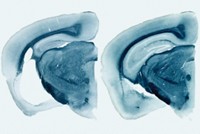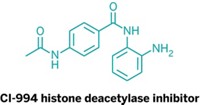Advertisement
Grab your lab coat. Let's get started
Welcome!
Welcome!
Create an account below to get 6 C&EN articles per month, receive newsletters and more - all free.
It seems this is your first time logging in online. Please enter the following information to continue.
As an ACS member you automatically get access to this site. All we need is few more details to create your reading experience.
Not you? Sign in with a different account.
Not you? Sign in with a different account.
ERROR 1
ERROR 1
ERROR 2
ERROR 2
ERROR 2
ERROR 2
ERROR 2
Password and Confirm password must match.
If you have an ACS member number, please enter it here so we can link this account to your membership. (optional)
ERROR 2
ACS values your privacy. By submitting your information, you are gaining access to C&EN and subscribing to our weekly newsletter. We use the information you provide to make your reading experience better, and we will never sell your data to third party members.
Biological Chemistry
Brain Protein Counters Despair
July 23, 2007
| A version of this story appeared in
Volume 85, Issue 30
Mice that are more resilient when faced with inescapable stress can thank a brain protein called ΔFosB, according to Eric J. Nestler of the University of Texas Southwestern Medical Center and colleagues (Neuron 2007, 55, 289). When mice are repeatedly exposed to random shocks, some eventually stop trying to escape and sink into despair. This state bears a similarity to human depression. The researchers found that mice that avoided despair and retained a strong desire to escape had higher brain levels of ΔFosB. The researchers also showed that increasing expression of ΔFosB in the brains of mice reduced symptoms of despair. The despair-reducing protein, a transcription factor that regulates the activity of multiple genes, appears to inhibit passive response to stress. The researchers will now explore whether antidepressants, which can reverse despair in mice, enhance resilience by boosting ΔFosB.




Join the conversation
Contact the reporter
Submit a Letter to the Editor for publication
Engage with us on Twitter